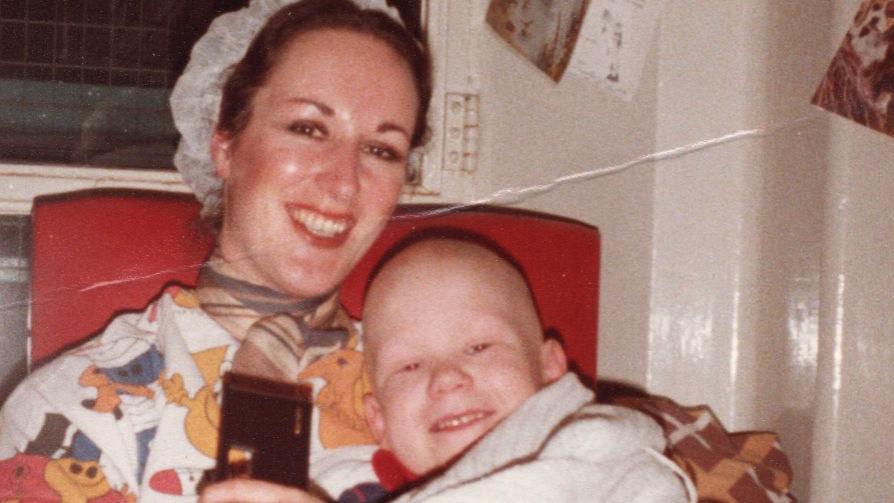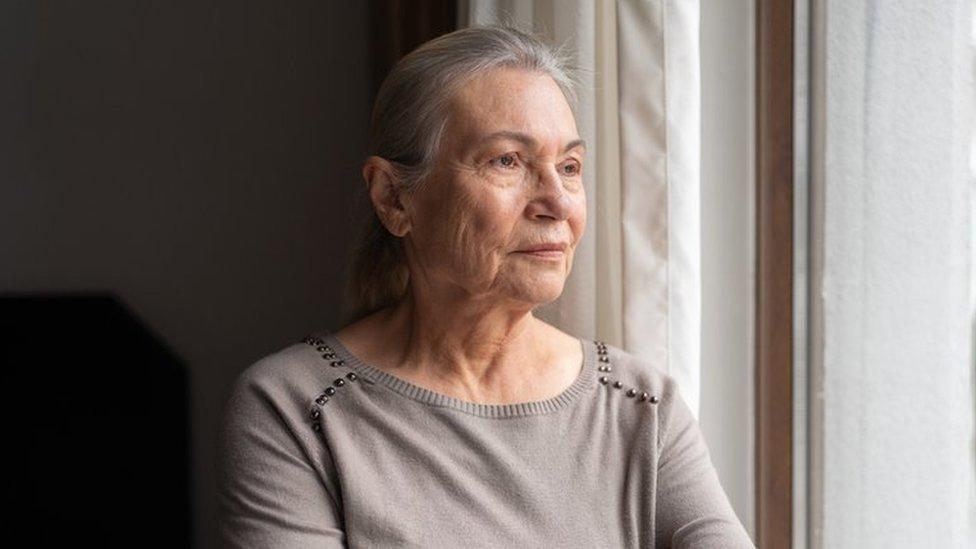'My stress and fear of taking my wife to Dignitas'
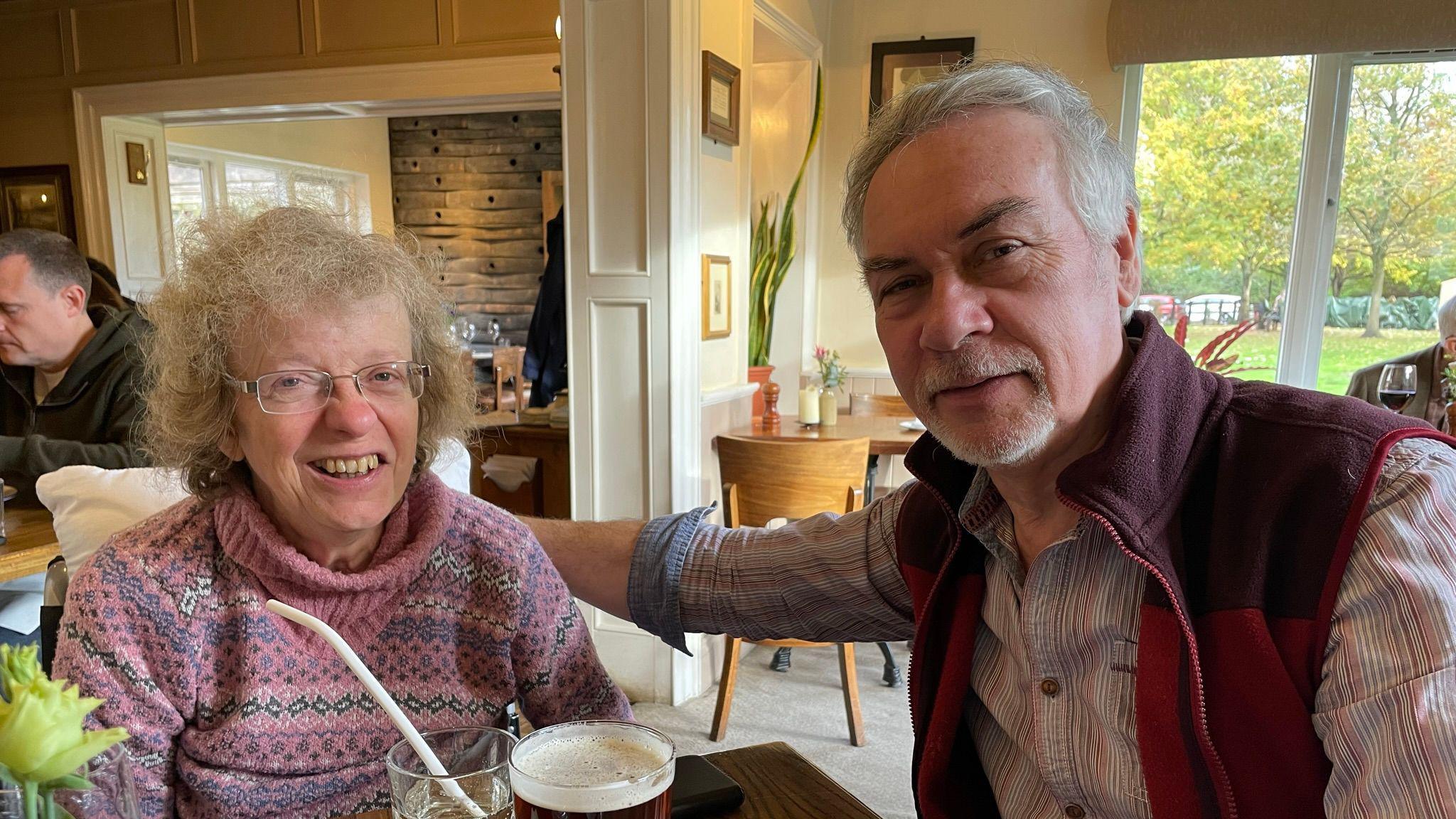
David and Alison had been married for over 30 years when she ended her life at Dignitas in February 2023
- Published
The family of a terminally ill woman who took her own life at Dignitas have spoken of the stress and worry they experienced trying to keep the plan a secret to avoid prosecution.
David, from Berkshire, accompanied his wife Alison to the assisted dying clinic in Switzerland in February 2023.
At present, laws throughout the UK prevent people from asking for medical help to die. Those who assist someone to end their life face up to 14 years in prison.
David and his daughter Catie, who lives in Oxfordshire, have decided to open up about what happened as part of efforts to change the law on assisted dying.
"The stress of looking over my shoulder... started to play on me quite badly," admits David.
"We just could not risk [telling] even the closest friend. You just thought 'well if they let their guard down and let it slip then all that work we did to keep it quiet would be undone'."
Alison was a talented singer, musician and artist. She taught French and German at the University of Reading and loved holidays and walking with her family.
She was diagnosed with motor neurone disease (MND), a life-limiting, neurological condition, in June 2022.
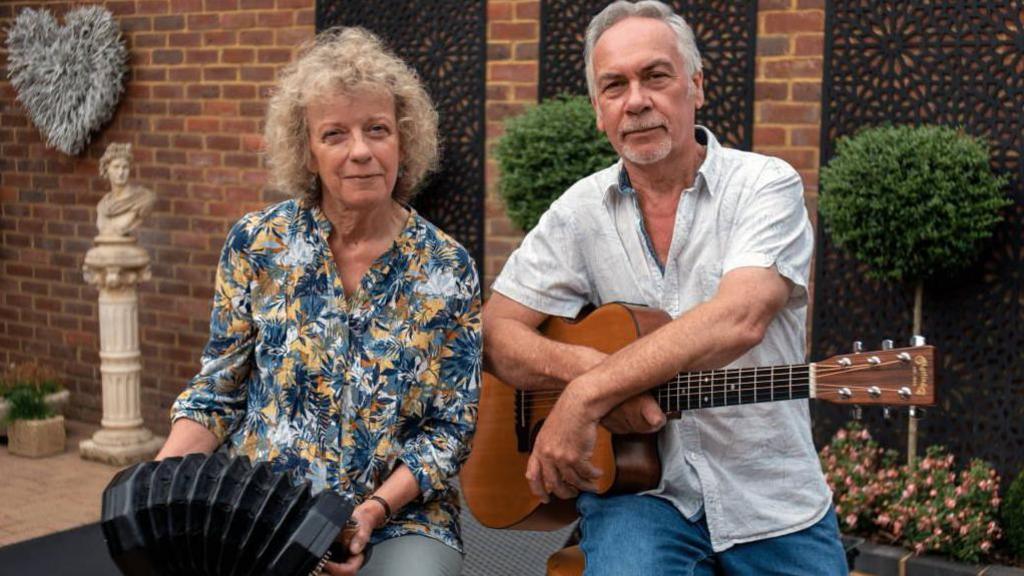
Alison and David performed in several folk bands together
Having researched MND and the impact it would have on her ability to walk, talk and swallow, Alison told her husband that she wanted to end her life on her own terms at Dignitas.
"She knew she would lose herself, everything she was would be taken away," David says.
"[It was] devastating because you knew there is no going back but I immediately went into 'how can we help? what can we do?' and that was my life for the following nine months."
David says Alison took care of most of the paperwork and calls to Switzerland.
But he says keeping it a secret from family and friends was very difficult.
"I was so busy dealing with the arrangements, I had to put emotion aside," he says.
"I was totally into carer mode getting through the airport but very, very scared about the journey in case somebody stopped us."
He adds: "I wouldn't want to see anybody go through that - it was really nasty, at the worst possible time in my life."
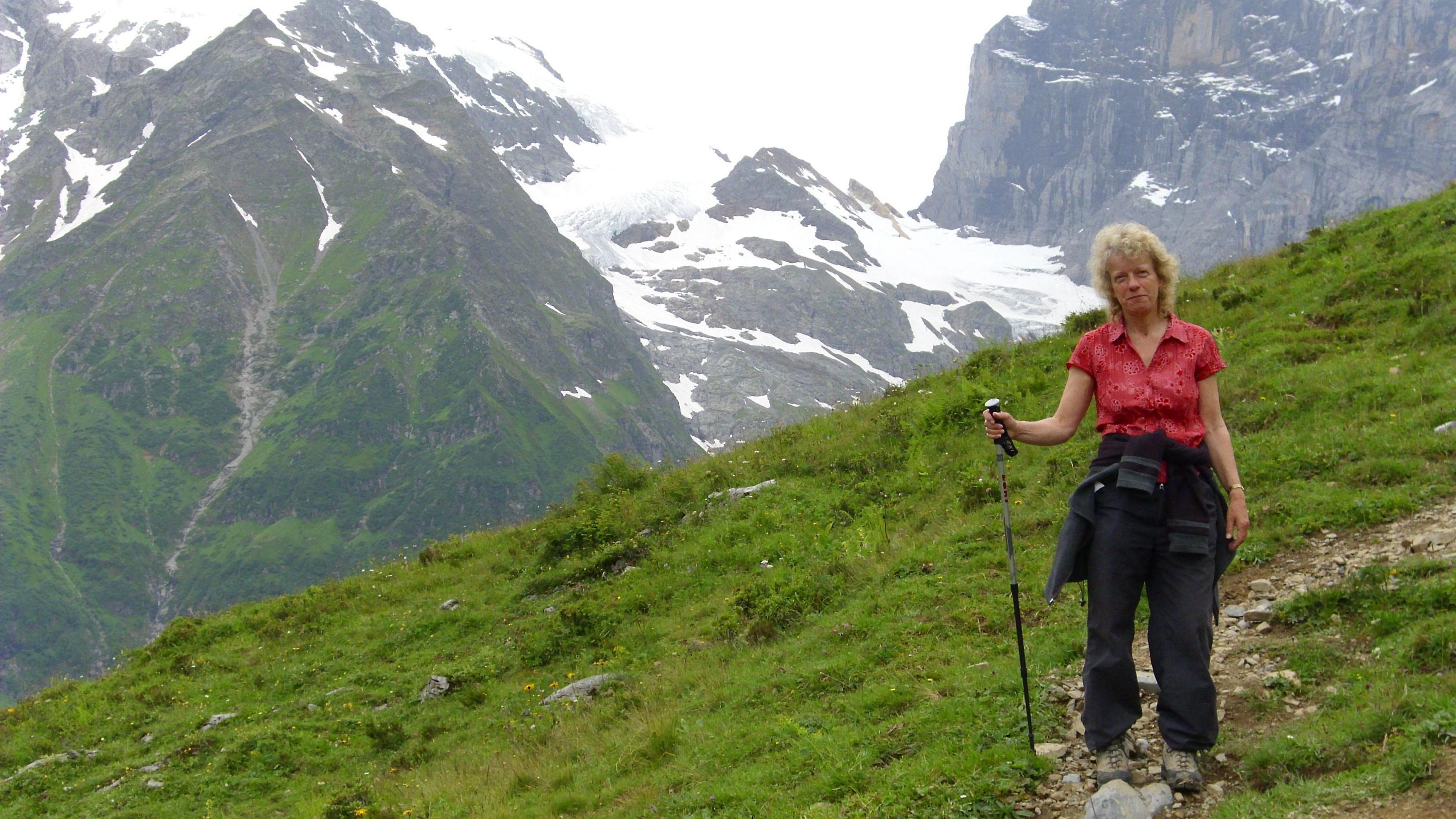
Alison loved family holidays and walking in the mountains before her diagnosis
Catie says: "We just waited for the text on the day and that's when we got the text 'she sleeps, so brave' because that's all Dad could manage to write on such an emotional morning."
David says attending Dignitas cost the couple about £15,000.
He says Alison was required to have a psychiatric evaluation in advance and when she arrived at the clinic she was interviewed by two doctors over two days to make sure she still wanted to go ahead.
Returning home to the UK by himself, David says he was left in a state of shock.
There was no funeral and Alison had to be cremated in Switzerland.
Both David and Catie say they have not been able to fully process Alison's death.
The family has decided to share their story ahead of an MP debate on Friday on proposals to give terminally ill people in England and Wales the right to choose to end their life.
Catie says: "Somebody should have the choice to end their life if they're terminally ill and mentally competent, as mum was, in a place that is close to home with all their family around them and be able to grieve without being scared or stressed."
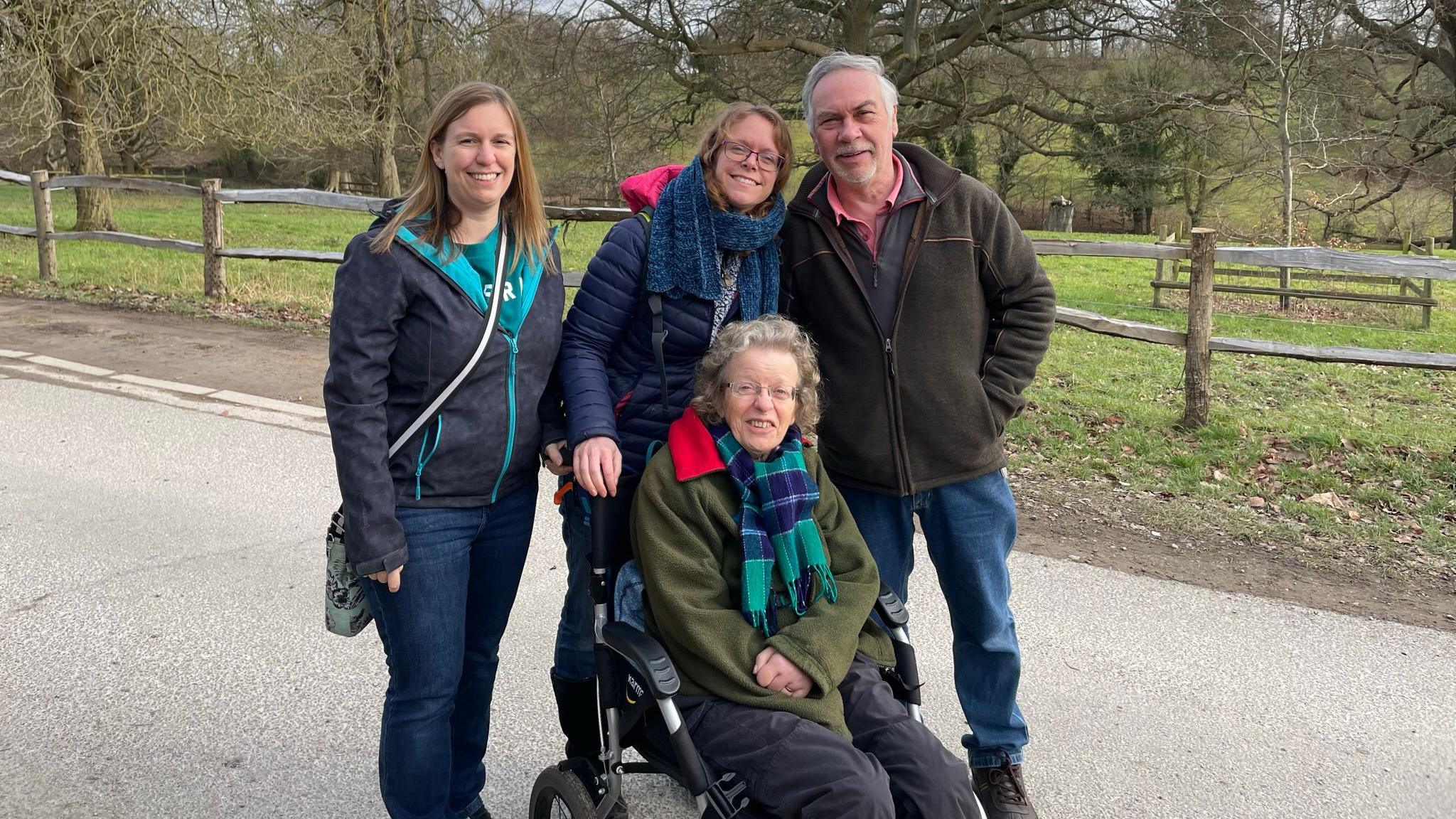
Alison's family are campaigning to change the law on assisted dying
Assisted dying is illegal in the UK but recently, Scotland, Jersey and the Isle of Man all announced they were considering changing the law to let terminally ill people end their lives.
Critics have said changing the law would "place pressure on vulnerable people, to end their lives", for fear of being a financial or emotional burden.
The anti-assisted dying campaign group Care Not Killing has warned that the criteria could, in time, be extended beyond terminally ill people to include those with disabilities and conditions such as dementia and depression.
The private members' bill was put forward by Labour MP Kim Leadbeater but the deeply sensitive nature of this issue has split politicians in all major parties.
Prime Minister Sir Keir Starmer has promised his party will be allowed to vote freely with their conscience.
UK membership of Dignitas jumped to 1,900 people in 2023, according to the organisation. That is a 24% rise on the previous year.
It said 40 people from the UK ended their lives at Dignitas in 2023, the highest level since 2019.
The latest figures from prosecutors, external suggest just four cases of assisted suicide have been prosecuted in the UK, with the majority not leading to charges.
Need help? If you have been affected by this story the BBC Action Line web page features a list of organisations which are ready to provide support and advice.
Get in touch
Do you have a story BBC Oxfordshire should cover?
You can follow BBC Oxfordshire on Facebook, external, X (Twitter), external, or Instagram, external.
- Published12 November 2024
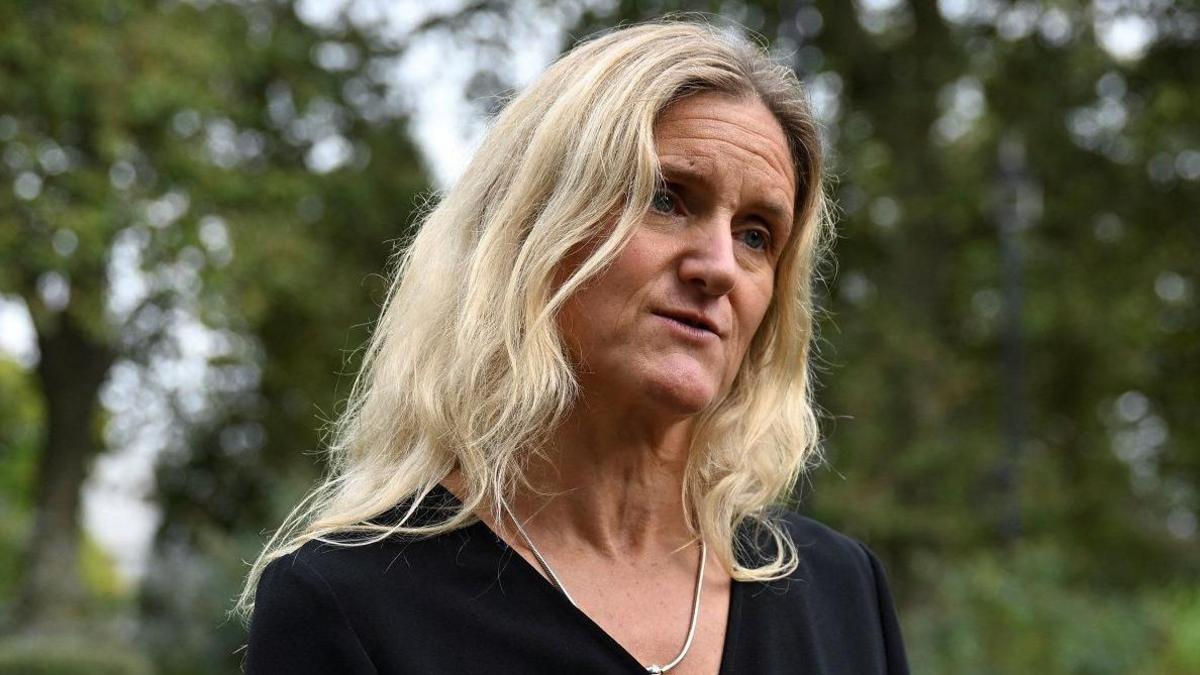
- Published29 October 2024
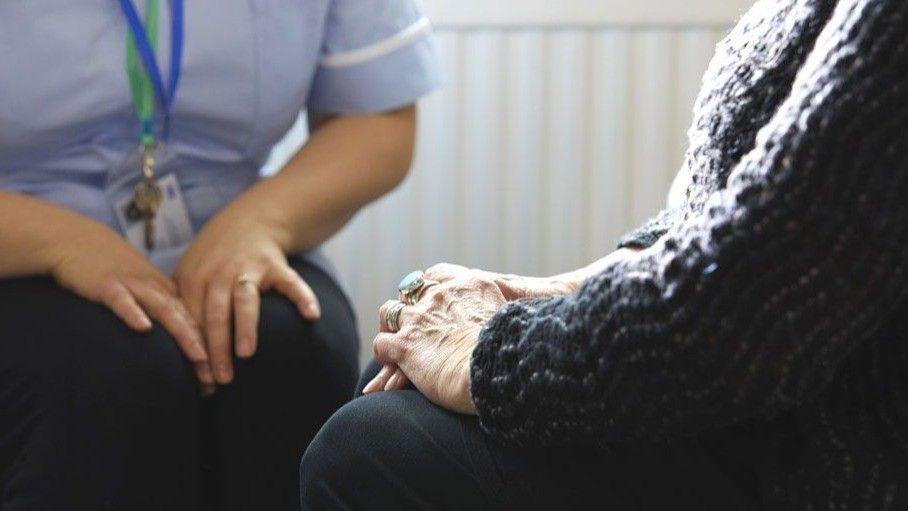
- Published8 July 2024
